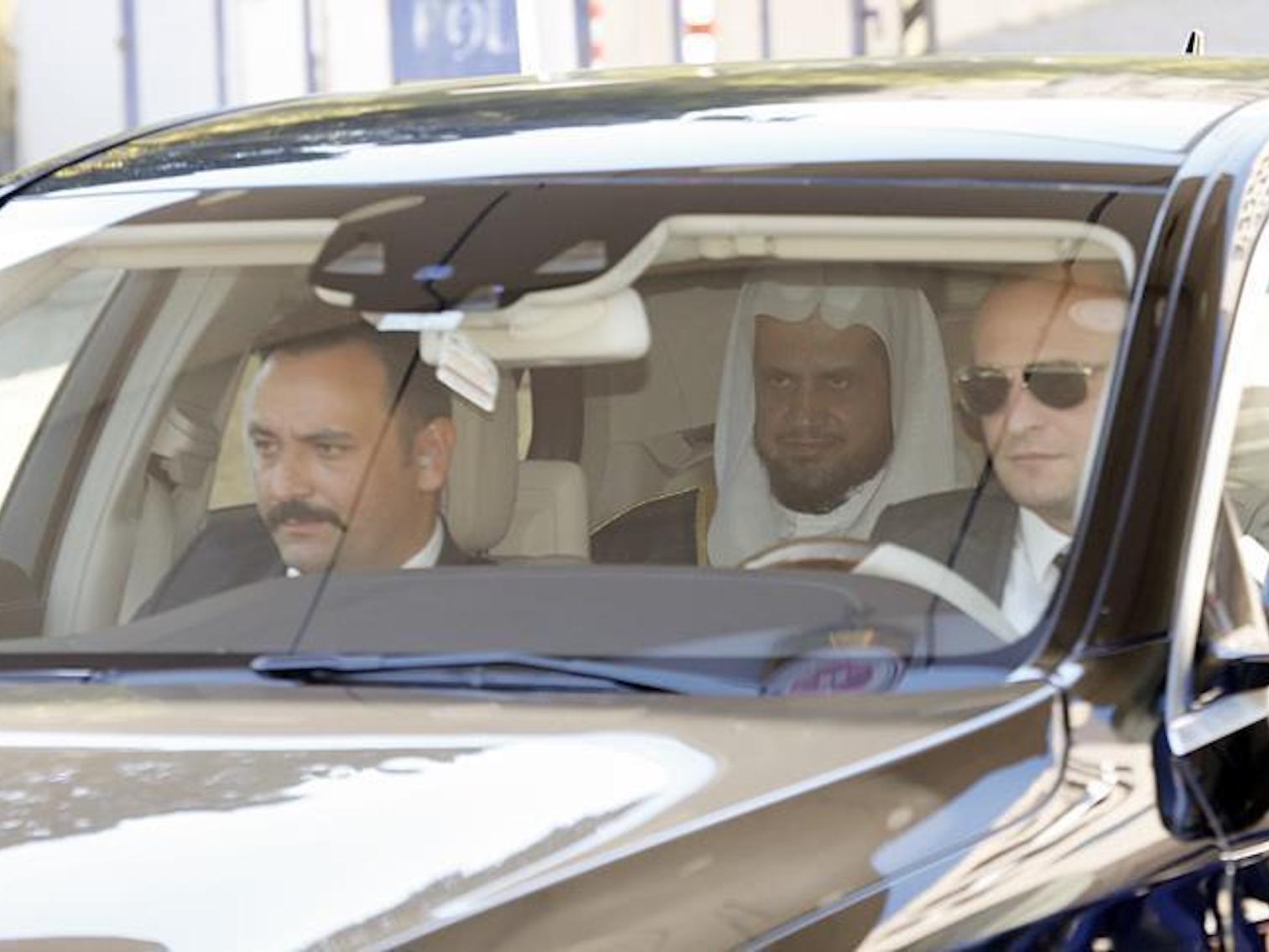Khashoggi murder: Turkish and Saudi prosecutors clash over investigation into journalist's death
‘We cannot leave this issue unsolved,’ an impatient Turkish president Recep Tayyip Erdogan demands. ‘We need to solve it now’

Your support helps us to tell the story
From reproductive rights to climate change to Big Tech, The Independent is on the ground when the story is developing. Whether it's investigating the financials of Elon Musk's pro-Trump PAC or producing our latest documentary, 'The A Word', which shines a light on the American women fighting for reproductive rights, we know how important it is to parse out the facts from the messaging.
At such a critical moment in US history, we need reporters on the ground. Your donation allows us to keep sending journalists to speak to both sides of the story.
The Independent is trusted by Americans across the entire political spectrum. And unlike many other quality news outlets, we choose not to lock Americans out of our reporting and analysis with paywalls. We believe quality journalism should be available to everyone, paid for by those who can afford it.
Your support makes all the difference.Turkish and Saudi prosecutors are clashing over the investigation into the murder of Jamal Khashoggi, the dissident journalist killed inside his own nation’s consulate in Istanbul four weeks ago.
Saudi attorney general Saud al-Mujib, arriving in the city on Monday to join a joint investigation into the killing of the 59-year-old Washington Post columnist, reportedly asked for all the evidence in the case, including recordings and testimony.
This request was rejected, according to the newspaper Yeni Safak, which is close to the Turkish government.
Meanwhile Saudi Arabia continues to brush aside Turkish demands that 15 suspects allegedly involved in planning, executing, and covering up the murder be interrogated and tried in Turkey. In Ankara on Tuesday, Turkish president Recep Tayyip Erdogan demanded greater cooperation from Saudi Arabia.
He also pressed for the identity of a man who Riyadh officials said had helped dispense with the body.
“Our prosecutor told the Saudi prosecutor that the prosecution could be carried out in Turkey since the location of the crime is Istanbul,” Mr Erdogan said at parliament on Tuesday. “Saudi officials also needed to disclose who had sent a 15-strong team to Istanbul to carry out the operation targeting Khashoggi, as well as the identity of a local agent said to have helped dispose of his body.”
In some of his bluntest words on the matter, he added, “We cannot leave this issue unsolved. We need to solve it now.”

Deep mistrust between the two countries lurks at the heart of the disagreements. After denying responsibility for Mr Khashoggi’s fate and urging the world to ask Turkey what happened to him, Riyadh changed its story several times before finally admitting last week that he was killed in a “premeditated” plot inside the consulate.
Turkey, a secular republic, has a constitution and a legal system modelled on that of France. Saudi Arabia is an absolute monarchy governed by sharia law as interpreted by fundamentalist clerics.
The contrast could be seen Tuesday as Mr Mujib, the Saudi prosecutor, showed up for a second time at Istanbul’s Caglayan courthouse and the Saudi consulate. He had a long beard and wore traditional Muslim clerical garb while surrounded by men in dark suits.
Istanbul’s chief prosecutor Irfan Fidan, favours a suit and tie and is clean-shaven.
Mr Mujib had been mostly known for being the jurist who pursued the rivals of Crown Prince Mohammed bin Salman.
Last year Mr Mujib played a role in the prosecution of Saudi royals locked inside the Ritz Carlton in Riyadh. It was reportedly the crown price’s attempt to consolidate his power and shake down the kingdom’s wealthy to finance his ambitious projects and his luxurious lifestyle.
Critics have accused Mr Erdogan, too, of turning Turkey’s legal system into a cudgel against rival politicians, including a party leader, as well as critical journalists and activists.
Both sides anticipate the other side will use legal channels to achieve political goals. Turkey suspects Saudi will obscure the involvement of the crown prince in the murder. Saudi fears Mr Erdogan will use the case to weaken the 33-year-old leader, whom he despises.
The course of the investigation will likely be determined through diplomatic rather than straightforward legal channels. “This is going to be more a political issue, and an issue concerning international law,” said Hatice Han Er, an Istanbul-based criminologist.
According to the Turkish criminal code, crimes committed on Turkish soil can be prosecuted inside the country.
“Turkey has the right to ask for the Khashoggi murder suspects’ extradition to Turkey,” said Deniz Baran, of Fatih Sultan Mehmet University's law centre in Istanbul.
“On paper, Saudi Arabia should hand them over to Turkey. There isn’t any specific bilateral treaty between two countries which reverses this rule.”
However, he added, Saudi Arabia retains sovereign authority over citizens on its soil. ”Turkey can’t force them,” he said. “It is another main principle of international law.”
A coalition of four human rights and press freedom groups have called for a United Nations investigation into Mr Khashoggi’s murder, worried that justice for the journalist will be subsumed by geopolitical machinations.
“An independent investigation is urgently needed to reveal the full truth about what happened to Jamal,” Kumi Naidoo, of Amnesty International.
Join our commenting forum
Join thought-provoking conversations, follow other Independent readers and see their replies
Comments